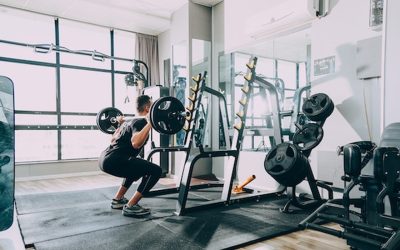Let’s face it shoulder pain is the worst. Not being able to get dressed without making loud grunting noises, difficulty reaching the top cupboard to get the wine glasses and spending weeks doing painful bench press in the gym hoping it will get better.
Shoulder pain affects EVERYONE – No matter gender, age, activity levels, sporty people or sedentary people.
Typically there is a trigger for that painful shoulder it could vary from an accident or fall, a change in activity load, a big day in the garden or lots smaller repetitive stress on the shoulder.
The Depot’s top tips for managing a painful shoulder!
- Avoid pushing & pressing exercises at the gym!
Bench press and shoulder press are the two most aggravating exercises for a painful shoulder.
Substitute these for bench press off the floor and work on those shoulders below shoulder height (think: bent over lateral raise!) - Rest does not help shoulders get better!
Shoulders are not very good at getting better by themselves. The majority of shoulder stability arises from the muscles surrounding the shoulder girdle, prolonged rest weakens this system and in return your shoulder may worsen over time not improve.
If we don’t fix the parts of your shoulder which help it move optimally then the painful cycle will start all over again. - Pulling exercises ONLY!
Work that upper back and postural muscles by adding more pulling work at the gym. (Think seated row, lat pull down etc).
We love exercises that promote healthy shoulder blade conditioning and movement. The shoulder generally does not hurt with these movements, we can keep you in the gym and you’re on your way to improving your shoulder pain for good. - Don’t forget thoracic mobility!
Limitations in thoracic mobility especially thoracic extension (arching your upper back backwards) will have huge effects on shoulder movement and function.
General postures, thoracic stiffness and tight muscles at the front can lead to ongoing shoulder issues.
So… sit up straight, get those back muscles working and pec muscles stretched out. - It’s a marathon not a sprint – Shoulders take time to rehabilitate!
Most painful shoulders should improve with treatment over a 3-6 week period. Full shoulder rehabilitation generally takes 12 weeks with ongoing exercises for long term management.
Remember pain free shoulders are generally robust and strong shoulders.
Shoulders sacrifice stability for large amounts mobility. All that mobility needs to be controlled by a very smooth series of coordinated muscle firing for it to perform optimally, when a shoulder gets injured this system malfunctions and it takes specific exercises to restore it.




